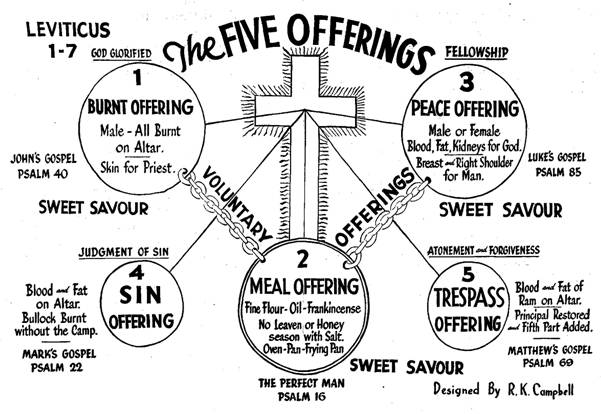I am excited to be able to share with you this free e-book on the topic of ” Offering in the new testament “. It is my hope that after reading it, you will have a better understanding of the topic.
There is different type of offerings mentioned in the new testament. One where you make an offering at the altar and another that deals with giving alms to the needy. These are two completely different offerings described in scripture.
In the New Testament, a gift or offering (Greek: δῶρον – dōron) is an action of giving something without the expectation of getting something in return. The term is used in Christianity to refer to both money as well as other offerings, such as animal sacrifices. In Christian theology, the grace of God is contrasted with works of merit, so that for the Christian, working for a reward is just like working for nothing.
The New Testament describes the contributions of the early churches and believers through the examples of the apostles, the women leaders, and their congregations. All believers who were able to gave offerings to help those in need including widows, orphans, those who traveled and others.
Right here on Churchgists, you are privy to a litany of relevant information on tithes and offering scriptures in the new testament, types of offerings in the bible, and so much more. Take out time to visit our catalog for more information on similar topics.

Offering In The New Testament
There were essentially two different kinds of sacrifices: sin offerings, which were offered for moral offenses, and thank offerings, which were offered to express gratitude for God’s goodness and blessing. The New Testament tells us that Jesus fulfilled the Old Testament sin offerings through his death
Offering in the new testament is one of the most important things to do as a Christian.
The word “offering” in the new testament can be used to describe different things. The most common use of “offering” in the new testament is when a Christian gives money to their church. This is called an offering because it is an offering of their money, which they give up for God’s work. It also helps them feel closer to God because they are giving something away that they value in order to help other people, which makes them feel like they are helping God out too.
Another way Christians can offer in the new testament is by praying for others. This is called an offering because it requires sacrifice on behalf of someone else and it also helps them feel closer to God because they are doing something good for another person with no physical reward from doing so (except maybe feeling good about helping someone else).
Offering in the New Testament
The New Testament describes offering as a gift to God. Jesus taught that we must offer ourselves to God as a sacrifice, and that means we give up everything we are and have.
This is what Jesus did when he gave his life for us. He offered himself as a sacrifice for our sins, so that we might be free from them. This is what the Bible calls “the perfect sacrifice.”
When we make offerings to God, it is not just about giving money or material things; it is about accepting what Jesus has done for us and making it part of our lives.
Tithes And Offering Scriptures In The New Testament
Matthew 5:23-24 – Make atonement for your gift where needed
As with any biblical scripture, what you get out of it is directly related to how much you put in. While it’s not absolutely required that we interpret Matthew 5:23-24 as referring to the offering and gifts we bring to the church, doing so can shed light on our own personal spiritual journeys and help us identify areas of weakness and need for growth.
Read over this passage again, slowly. With each line, ask yourself: “How does this relate to me?” As you do, you may find yourself opening up in ways that allow you to see your life through God’s eyes—and when this happens, we may become more aware of a need for reconciliation.
This process is especially important if there are others who have a stake in the tithe or gift in question—such as a spouse or business partner whose money was used as part of the offering. If any wrongdoing has been done, atonement should be made wherever possible.
But how exactly do we make atonement? For many people involved in giving an offering, making restitution may be difficult because churches are not set up like banks or stores (for good reason!). But it’s important to remember that Jesus gives no instruction for how atonement should be carried out; instead he outlines the importance of doing so from a heart that is repentant and desiring reconciliation with those affected by our actions.
1 Corinthians 16:1-2 – On the first day of every week, each one of you should set aside a sum of money in keeping with his income
Before we get into the passage, let’s first look at some things we can practice before spending any money or writing a check:
- First, ask yourself if you are giving out of thanksgiving for what God has done and is doing in your life.
- Second, ask yourself if you are giving out of the overflow of God’s blessings in your life. Are you being generous with your time and money because you have so much?
- Third, calculate how much you can give as a percentage of your income. Can it be 10%? 20%? 30%? What makes sense for where you are right now?
- Fourth, ask yourself how sacrificially you can give to others. I believe there is something truly beautiful when our generosity begins to affect our comfort level. If we want to grow in our ability to love people well through giving, it will require us to make sacrifices and prioritize generosity over other things that consume our budgets.
2 Corinthians 9:7 – Each man should give what he has decided in his heart to give, not reluctantly or under compulsion, for God loves a cheerful giver
- Give in proportion to your income.
- Give as you have purposed in your heart, not out of compulsion.
- Give cheerfully.
- Give with the right motivation.
- Give generously.
- Give sacrificially.
- Give with a thankful heart.
- Give from honest labor
2 Corinthians 8:12 – Let your giving be done in such a way that it results in thanksgiving to God
- Giving is more than just giving money; you can give time, talents and encouragement.
- You can give to the church and to others. Lastly, you can give to those in need.
1 Corinthians 16:1-3 – Whatever you do, do it generously and cheerfully
In the New Testament, there are many examples of how to give generously and cheerfully. One of these is explained in 1 Corinthians 16:1-3:
“Now concerning the collection for the saints: as I directed the churches of Galatia, so you also are to do. On the first day of every week, each of you is to put something aside and store it up, as he may prosper, so that there will be no collecting when I come. And when I arrive, I will send those whom you accredit by letter to carry your gift to Jerusalem.”
From this passage we learn it’s important to make a plan for giving that is thorough and consistent, so that what you have set aside comes from your surplus rather than from your basic needs. We should also aim to give more than we receive–this means even if our giving doesn’t feel like much in comparison with what others give or what we receive from God’s grace and blessings, it’s still important not just to consider our offering meaningless but rather deeply meaningful and appreciated by God. What’s most important is maintaining a steady pattern or habit of generosity in all things–being on time when meeting people at church or anywhere else; going out of your way to talk with someone who seems lonely; keeping any promises we make. This can demonstrate our gratefulness for God’s love as well as show love toward others as Christ did toward us.
Philippians 4:18 – You have been generous in every way
This passage is a great example of the importance of giving material gifts. As Paul is about to wrap up his letter to the church at Philippi, he gives thanks for their many acts of kindness towards him. He states, “I have received full payment, and more; I am well supplied, having received from Epaphroditus the gifts you sent” (verse 18).
We see that these material gifts were very important to Paul. In fact, he had previously begged the church at Philippi to send him aid in his hour of need. We read in verse 10 that they were the only ones who did so during this time: “I rejoiced in the Lord greatly that now at length you have revived your concern for me.” After this letter was written, we are told by Paul later on that he also received aid from other churches such as Corinth during his time as an apostle (2 Corinthians 11:9). Nevertheless, Paul’s point here is not simply to show off what wonderful things God had done through him and others like him. His goal is instead to encourage his readers:
The main point that we can take away from this passage is simple—the church at Philippi gave willingly even when they did not have much themselves. They did so because it was a token of their affection and desire for Paul’s well-being (see Philippians 2:25-27). It may be difficult for us today with our abundance of wealth compared what people had back then but it should never keep us from helping those around us who need our help!
Mark 12:41-44 – Jesus commended the poor widow for her offering of two very small copper coins. It all depends on what is left. Give sacrificially out of love.
In verse 44, Jesus points out a poor widow who contributed to the collection at the temple and gave two small copper coins. In contrast to the rich people in vv. 43-43 who gave out of their wealth and received recognition for their gifts, this widow gave all that she had. She offered her last bit of money, which wasn’t much, but it was all that she had. Even though the amount that she gave was insignificant compared to what others offered, Jesus commended her for her generous offering, calling her gift more valuable than those from others because it was given out of love and not merely out of abundance.
Jesus’ example shows us that he wants us to give sacrificially, even if we don’t have much money. Sometimes we can be tempted to think that our contributions are insignificant because we don’t have a lot of money or things to offer God or church members; however, just like this woman did when she offered two small copper coins as an act of worship and devotion, we should also trust God with all our resources and use what he has entrusted to us for his purposes with generosity.
Giving shouldn’t be grudgingly but joyfully from the heart.
Giving is not about how much you give or about who is worthy to receive. Giving is about joyfully giving from the heart without grudges.
Giving does not have to be monetary nor does it always mean giving directly to the poor, needy, or the church. Giving can look like many things: a kind word, a cheery attitude after a bad day at work, bringing food to someone when they’ve just had surgery and can’t cook, volunteering at a local charity that provides meals for those in need, etc…
